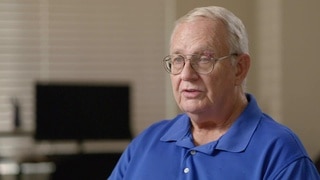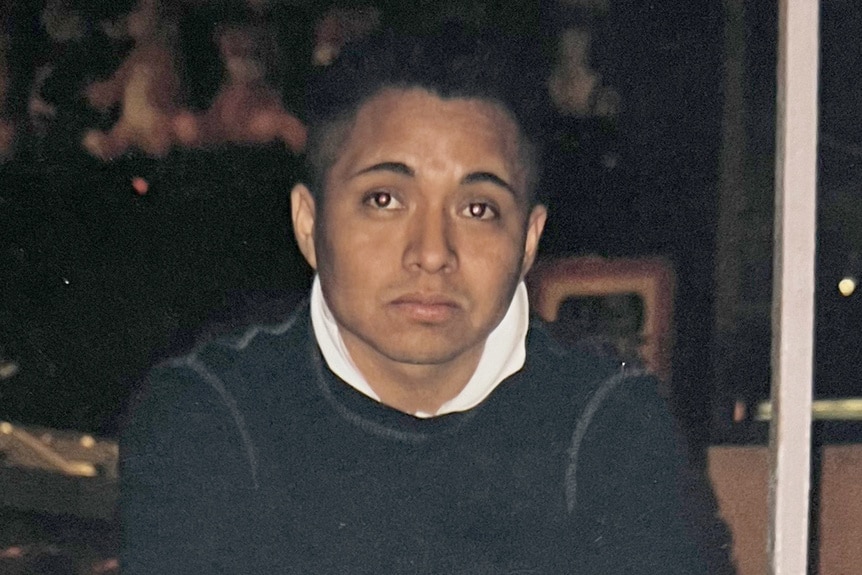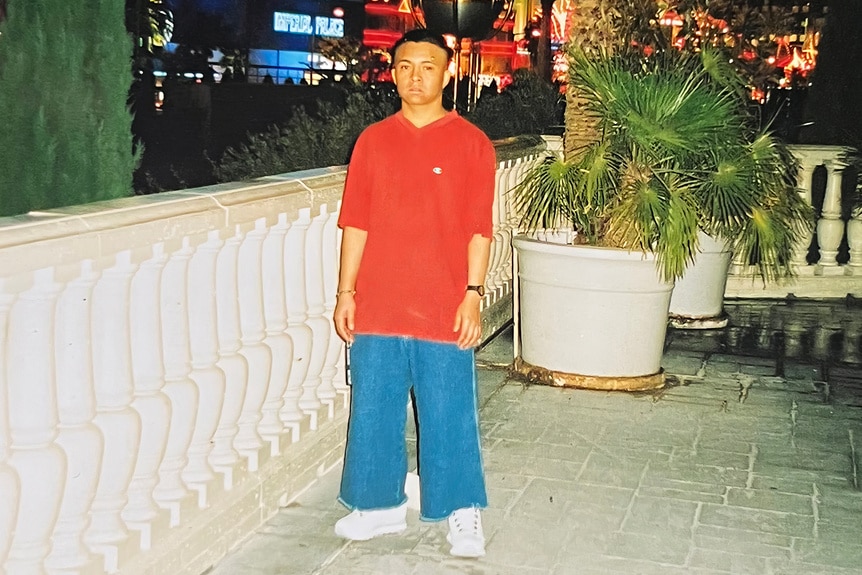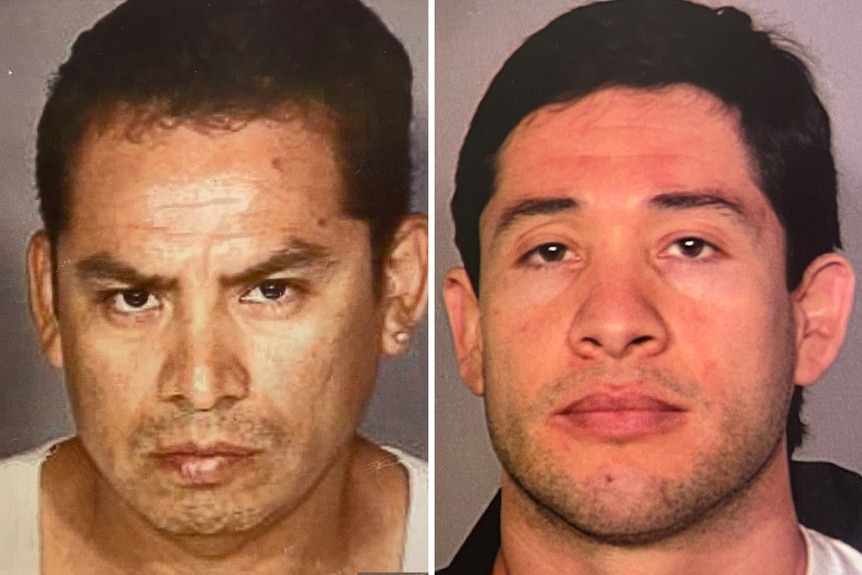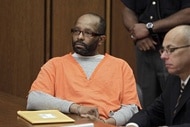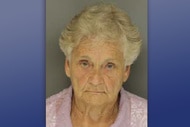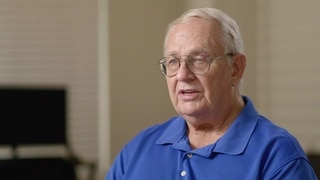Create a free profile to get unlimited access to exclusive videos, breaking news, sweepstakes, and more!
Hotel Hot Dog Vendor Killed in Las Vegas Bombing By Girlfriend's Ex and Fellow Conspirator
A fatal Luxor Hotel garage car bombing leads detectives to a love triangle involving the victim, his girlfriend and her "jealous" former boyfriend.
The Luxor Hotel & Casino in Las Vegas is famous for its massive pyramid and Egyptian-style statues. On May 7, 2007, the property’s rooftop parking garage was the scene of an explosion.
“There was a victim laying on the ground with his right hand severed,” said Las Vegas Metropolitan Police Department homicide detective Dean O’Kelley.
“He was not conscious and bleeding profusely from his head," O’Kelley told Sin City Murders, airing Sundays at 7/6c p.m. on Oxygen.
For more from Sin City Murders:
Las Vegas Performer Strangled and Cut Off Dancer's Legs Before Burying Her in Cement
Influencer Injected with Pool Cleaner, Encased in Cement and Dumped in Las Vegas Desert
Killer Located in Nudist Camp After Missing Bookie Found Buried in Las Vegas Desert
What happened to Willebaldo Dorantes Antonio?
The victim was identified as Willebaldo Dorantes Antonio, 24, who worked at the Luxor outpost of Nathan's Famous hot dogs. Caren Chali, a coworker he’d been dating for 10 months, was shaken up but not injured in the blast.
Antonio was rushed to the hospital. Chali said that the blast happened when Antonio reached for a coffee cup on the roof of his 1995 Dodge Stratus. “We were looking at a pipe bomb,” said O’Kelley.
Was this bomb an act of terrorism? “Las Vegas is such a tourist destination. It's a fear that terrorism could strike the heart of the United States tourism industry,” Christine Maddela, a former news anchor for Las Vegas station, KVVU-TV, told Sin City Murders.
Detectives were considering that possibility when Antonio was pronounced dead at the hospital. As investigators combed through the Luxor rooftop scene, they learned of a second bombing that occurred at a nearby tattoo shop less than two hours earlier.
O’Kelley said that officials considered “some sort of coordinated attack on Las Vegas,” he said. But it was determined that the two cases were not connected.
Police look into whether Willebaldo Dorantes Antonio was targeted
Officials knew that the bomb was planted on Antonio’s car. But they were unsure if he was targeted or chosen randomly.
A team of investigators collected more than 180 pieces of evidence to better understand the bombing.
Evidence included a Styrofoam cup from 7-Eleven that contained the bomb, a 9-volt battery, pipe components, and part of a Christmas tree light.
Danny Waltenbaugh, a retired senior explosives enforcement specialist for the Bureau of Alcohol, Tobacco, Firearms and Explosives, reconstructed the device to learn more about it and its maker.
Investigators search surveillance footage
At the same time, detectives pored over surveillance footage of the Luxor rooftop. Antonio and Chali were seen approaching his car just after 4 a.m.
Investigators were eager to see if the cameras caught the suspects in action. Investigators went “backwards in time on the video,” said David Stanton, a former chief deputy Clark County district attorney.
Through a painstaking process, they determined that a car with a driver and a passenger stopped by Antonio’s vehicle.
The footage was grainy black-and-white but detectives had clear shots of brake lights and a body style. The suspicious car was eventually identified as a 2006 Chevrolet Cobalt. No one in Antonio’s inner circle recognized the vehicle.
Antonio’s autopsy showed that the fatal blow came from a pipe fragment that struck him in the head. Other injuries showed that “he didn’t even have a chance to blink or close his eyes when the device went off,” said O’Kelley.
Who would want to harm the victim? The victim’s family members told detectives that Antonio had no enemies.
As detectives worked the case, they learned that Antonio had a wife and a 1-year-old child. Investigators considered that there was a love triangle and that jealousy was a motive. However, Antonio’s wife was ruled out as a suspect.
Reconstructed bomb reveals clues
Explosives expert Waltenbaugh’s analysis of the device that killed Antonio revealed that police “were dealing with somebody who is experienced in making bombs,” he told Sin City Murders.
Detectives reinterviewed Chali. She told them to look into her ex-boyfriend, Alexander Perez, who was the father of her 3-year-old daughter.
“Alex Perez was jealous,” said Maddela. “He started stalking her... even showing up at work asking to see their daughter. He really became problematic.”
Investigators tried to speak with Perez but were unable to locate him. Through his landlord, they learned he used another name, Omar Rueda-Denvers.
Omar Rueda-Denvers and Porfirio Duarte-Herrera emerge as suspects
Detectives also found out that Rueda-Denvers had recently been arrested for domestic violence against Rosa Alfonso. She drove a Chevy Cobalt, the same make of car in the rooftop surveillance video.
When interviewed by police, Alfonso said that Rueda-Denvers stopped by her house on the night of May 6, but left abruptly when he got a call from a friend, Porfirio “Pilo” Duarte-Herrera.
Alfonso said she hadn’t loaned Rueda-Denvers her car, but her spare key was missing. “It was possible that Omar would have had access to it,” said O’Kelley.
Homicide detectives arrested Rueda-Denvers at a traffic stop. A search of the vehicle turned up no evidence to link him to the device that killed Antonio. But Alfonso’s keys were found.
Rueda-Denvers admitted driving to the Luxor but denied any involvement in the bombing. “He claimed that he wanted to know where Caren was going,” said O’Kelley.
Duarte-Herrera also denied involvement in the bombing. But searches of their residences and workplaces turned up evidence that told different stories.
At Rueda-Denvers’ workplace, investigators found batteries that matched the lot for the one in the explosive device.
At Duarte-Herrera’s home, they found pipe components, wire and a strand of Christmas tree lights with a section that was missing. Detectives concluded that Duarte-Herrera made the bomb.
Omar Rueda-Denvers and Porfirio Duarte-Herrera arrested for murder
Both men were charged with use of the incendiary device and for murder, according to Sin City Murders.
In August 2009, the defendants’ joint trial began. Both men were convicted on all charges and sentenced to life without parole.
In 2021, Rueda-Denvers, who had appealed, was granted a new trial due to a Bruton violation. Such an event occurs when a co-defendant's confession incriminates another defendant.
"Bruton said that when there are multiple criminal defendants on trial, you can't admit the statement of one if it implicates the other one," Eckley Keach, a former deputy DA for the Clark County District Attorney's Office, told Sin City Murders. "Some of the statements that were made by Pilo implicated Omar, and the federal court said that was a Bruton violation."
So, Rueda-Denvers got a new trial.
“In a way, being able to just prosecute Omar helped us clarify the facts of the case, because it allowed us to present to the jury the true mastermind," Keach said of taking on the re-prosecution. "It's a love triangle between Omar, Caren and Willebaldo.”
Rueda-Denvers was once again found guilty. He was sentenced to life in prison, according to case documents.
In September 2022, Duarte-Herrera escaped from a medium-security Nevada prison, without anyone noticing for four days, NBC News reported. A tip led to his capture at a transit center in Las Vegas as he prepared to board a bus out of town.
To learn more about the case, covered in the “Bombing at the Luxor Casino” episode, watch Sin City Murders, airing Sundays at 7/6c p.m. on Oxygen.


